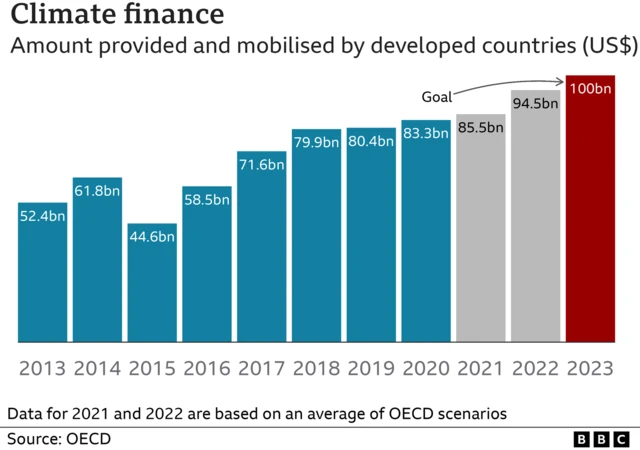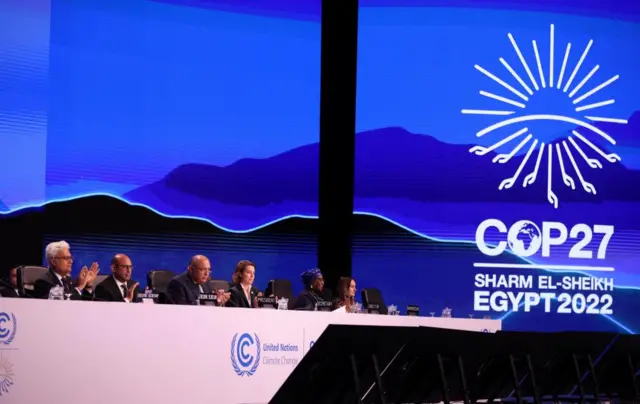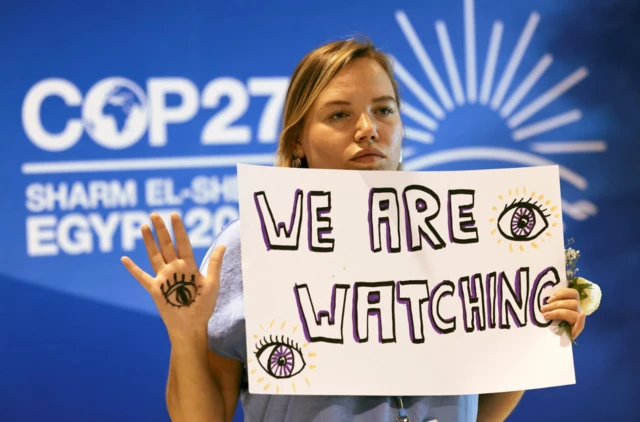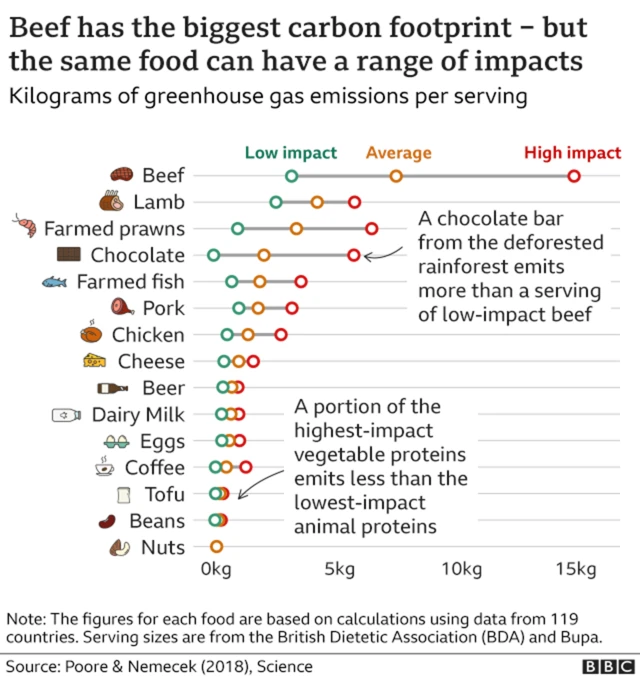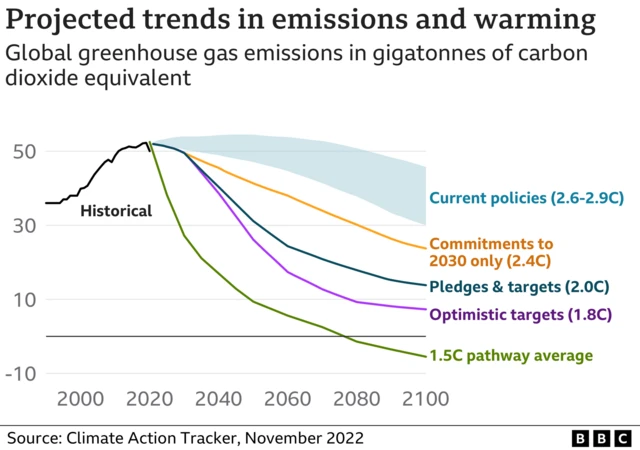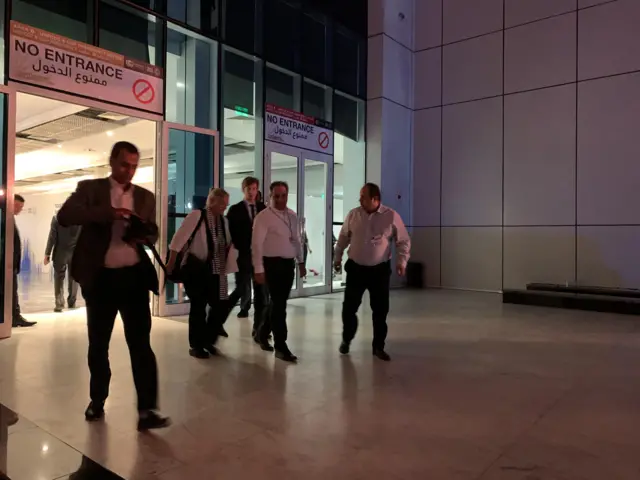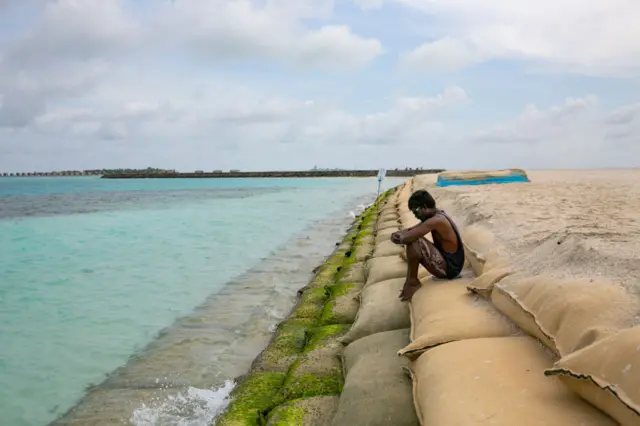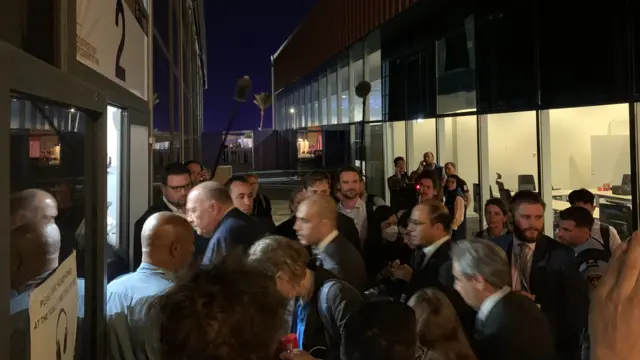Still much to agree on, despite landmark dealpublished at 02:54 GMT 20 November 2022
 Georgina Rannard
Georgina Rannard
Reporting from COP27
After that huge moment, COP27's President Sameh Shoukry swiftly moved on to this summit's overarching decision - called a cover text - which would bring together all of the elements discussed here in Egypt.
Switzerland immediately raised its hand, asking for more time.
Nations have not had time to read the draft decision, it said, asking for a 30 minute break.
It has been granted and now there is silence in the room.
I saw EU negotiator Franz Timmermans stride in, followed seconds later by the UK's Alok Sharma.
We're watching closely to see what happens next - there could be a real fight ahead.
